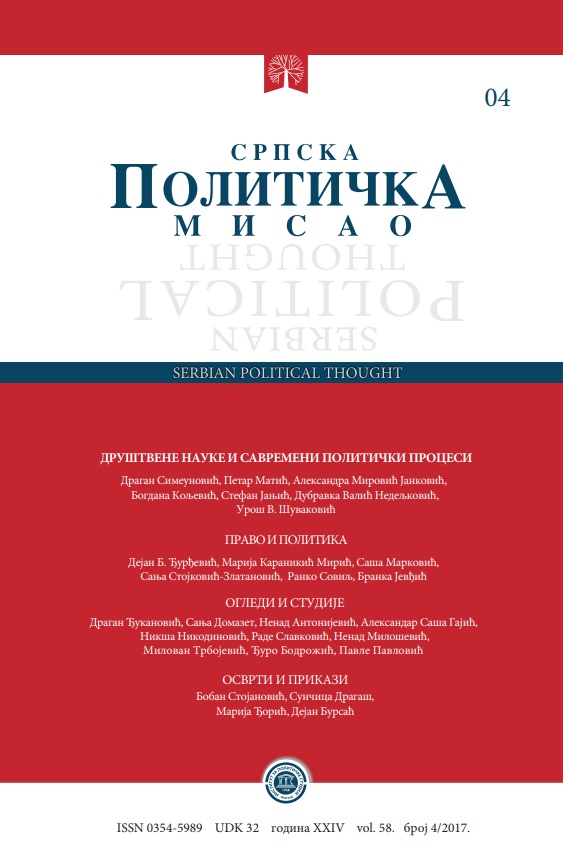Рансијерова демократска политика
Ranciere Democratic Politics
Author(s): Bogdana KoljevićSubject(s): Government/Political systems
Published by: Институт за политичке студије
Keywords: true democracy; politics; equality; liberalism; representation
Summary/Abstract: In this article the author considers Ranciere’s multilevel critique of contemporary democracy as well as all the foundations of his own political and philosophical conception, which, in turn, is articulated as the alternative to existing democratic discourses and practices. It is exemplified that Ranciere’s work can be characterized as a unique form of poststructuralism in political philosophy. In the centre of Ranciere’s critique is the thought about the so-called “democratic man” and the notion of “democratic life” as the par excellence forms and manifestations of liberalism in the 21st century. For Ranciere this is illustrated as the contemporary “scandal of democracy” as its perfect simulation in a paradigmatic ideological setting. Moreover, it is precisely such a framework – accompanied by political practices – that creates not only the postmodern illusion of an ethical discourse but equally serves as the basis of fake humanitarianism i.e. of the inexplicable “democracy of force” and the United States imposing its order in the world (imperial democracy). However, Ranciere’s theory of building a new democratic politics aims to bring into question the entire sphere of politics as police and, therefore, the hierarchal structural form of the state with a special emphasis on current economic and social oligarchies. The institutions themselves are perceived as mere appearances that conceal the core division in society. The key argument is that the common signifier lies in representation and that the difference between representational (liberal) democracy and direct (socialist) democracy is of decisive importance for comprehending the political. Simultaneously, it is presented how contingency and chance have an irreplaceable role to play in the democratic process (such as in “drawing of lots”) and that this is interconnected to the “anarchical principle” as well as to the category of the event. Moreover, it is in this way that Ranciere’s political-philosophical thinking opposes established theories of democracy through the affirmation of Marx’s idea of “true democracy” as egalitarianism per se i.e. as original equality which means that in principle no one is more or less entitled to govern and/or to be governed. In that respect, the right and power to govern is the right of all and no one in particular. In conclusion, the author addresses the relation of Ranciere’s discourse of radical democracy to the concepts of the state, society and publicity in particular and underlines all relevant elements of his uncompromised reflections and its potential implications in concrete political practices. The examples are various – from truth being recognized as the subversive form in itself all the way to understanding that in ordinary everyday politics states can, and usually are, more or less democracies.
Journal: Српска политичка мисао
- Issue Year: 2017
- Issue No: 4
- Page Range: 53-66
- Page Count: 14
- Language: Serbian

